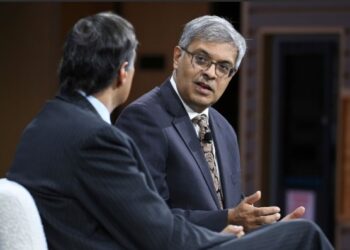The federal government is funding research into "countering populist narratives" about the COVID-19 pandemic in several countries including the U.S.
The unearthed grant from the National Science Foundation (NSF) follows leaked documents and internal communications at Twitter revealing U.S. government agencies' deep involvement in the censorship of "misinformation." What exactly constitutes "misinformation," however, remains nebulous, and the term has often been weaponized to silence conservatives and individuals speaking out against COVID-19 vaccines.
A testament to the government's influence over censorship and "misinformation" on social media platforms, War Room can reveal the NSF is funding a grant titled: "Pandemic Communication in Time of Populism: Building Resilient Media and Ensuring Effective Pandemic Communication in Divided Societies."

Launched on April 27, 2022, the NSF has already allocated $199,516 to researchers at the George Washington University in Washington, D.C.
"This project uses several methods to study how populist politicians distorted COVID-19 pandemic health communication to encourage polarized attitudes and distrust among citizens, thus making them more vulnerable to misinformation generally," explains a summary of the grant.
The taxpayer-funded research is also keen on "countering" the aforementioned populist narratives:
"It also studies how best to counter these populist narratives and develop more effective communication channels."
To do so, the focus areas for researchers include "government led pandemic communication, media policy, media coverage, and public attitudes towards the media."
"The research will inform recommendations aimed at building more resilient media organizations that are better equipped to withstand the challenges of future pandemics in divided societies," adds the NSF synopsis before reiterating:
"The project will also study how best to counter these populist narratives and develop more efficient and reliable communication."
Researchers are focusing on the countries "Brazil, Poland, Serbia, and the US," as they were "all led by populist leaders during the pandemic and capture different types of populist responses to the pandemic."




![Bannon’s WarRoom, Show Clip Roundup 10/17/2024 [PM]](https://warroom.org/wp-content/uploads/2024/10/GQ-06-Bannon-061517-350x250.webp)
